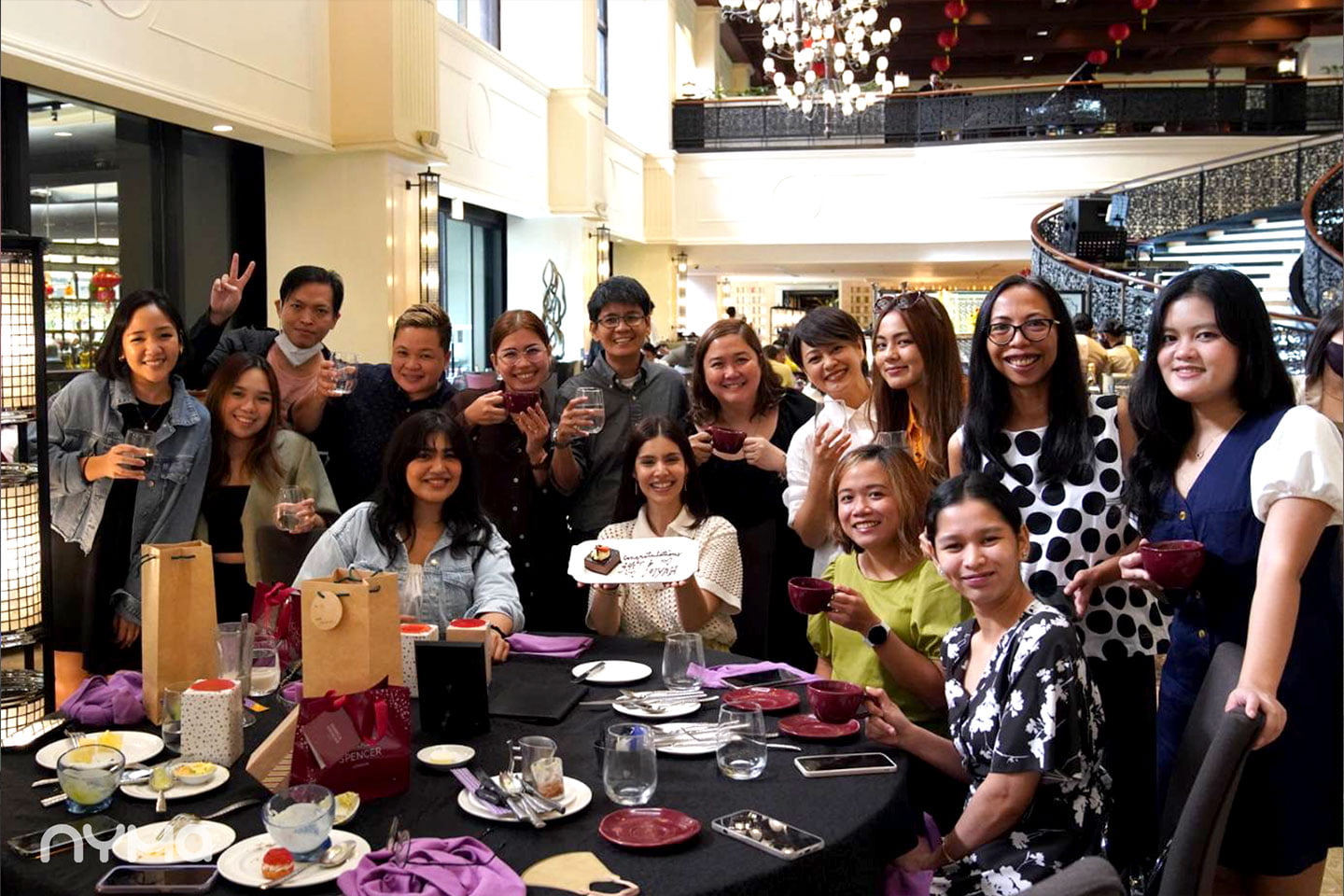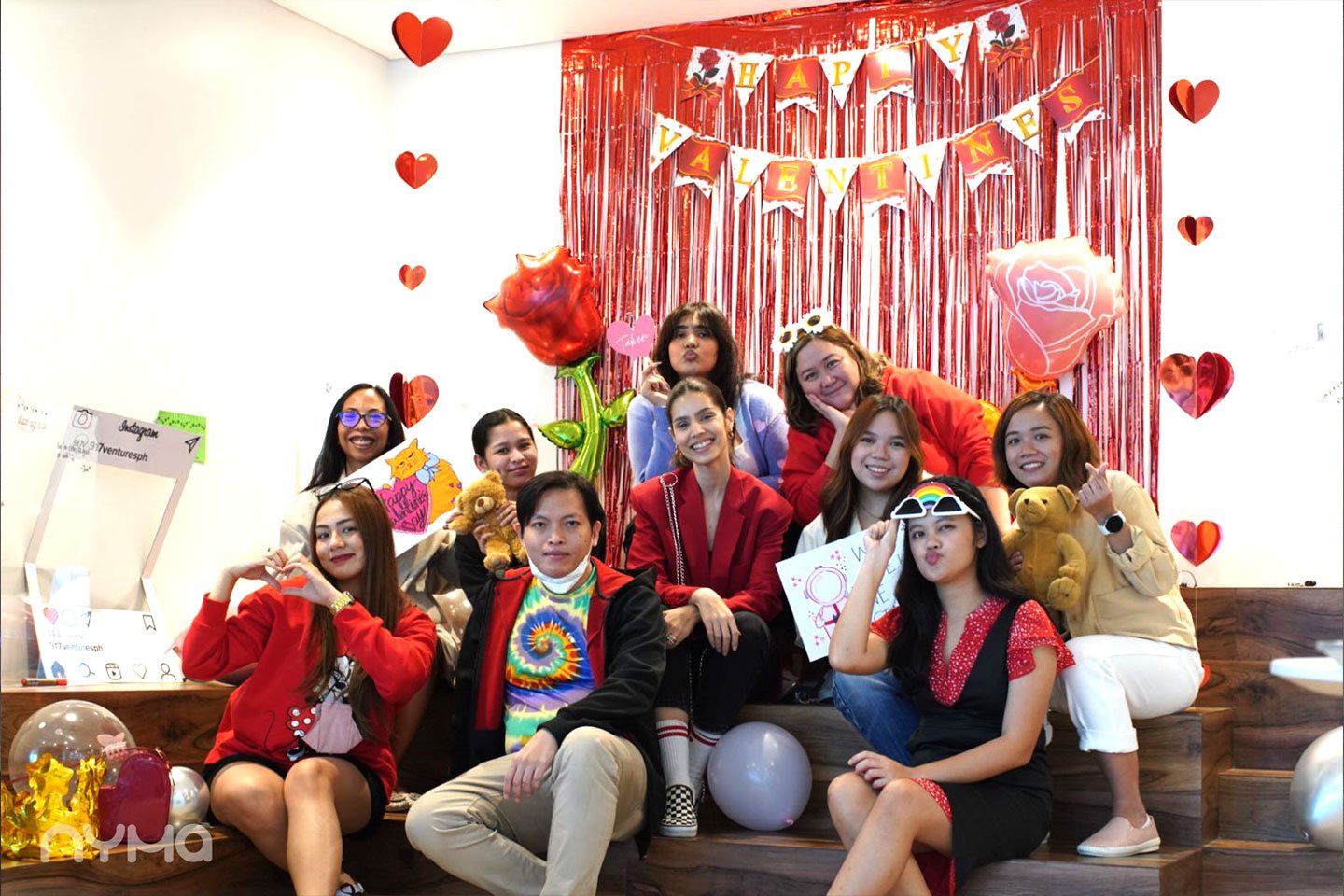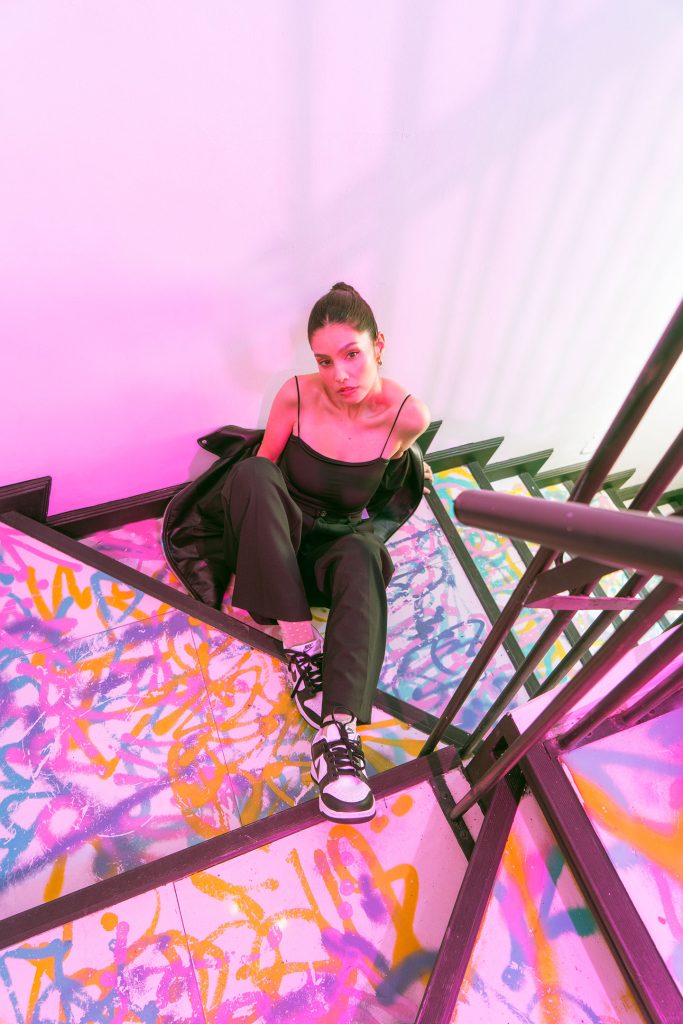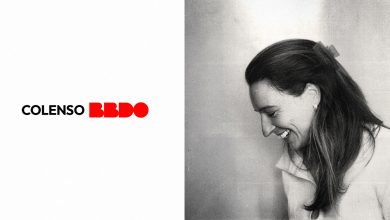MANILA, PHILIPPINES — Among the brightly glowing stars in the media industry, NYMA has a special constellation of its own luminaries in different realms. The local talent management agency is akin to a budding nebula shaping its own illustrious body of trailblazers in the spheres of music, acting, content creation, and visual arts. Playing orchestrator with her Midas touch is NYMA Head of Talent, Kat Bautista.
Kat moved to Silicon Valley, California as a teen, and got her college degree there. It was also in Silicon Valley where she launched her career as a tech expert, working at one of the biggest tech giants in the world. In 2013, she moved back to Manila and became an executive at one of the leading telecom companies in the country. Now, she has ventured into the world of talent management and is currently handling some of the most popular content creators in the country. A few notable talents that she’s mentoring are TikTok star and visual artist Raco Ruiz; content creator and founder of online community Home Buddies Frances Cabatuando, also known as Mayora Frances; actress, director, and singer Kristel Fulgar; and singer and producer dubbed as “Asia’s Phoenix” Morissette.
We sat down with Kat for a two-part interview to shed some light on how NYMA started, what the business is all about, how she went from working in tech and telecom to talent management, and how her past life in the telecom industry empowered her shift to a new field and title.

NYMA stands for “Now You Must Aspire” and what we aspire to do as a talent management company is bring our creators to places they haven’t been before. We work with their dreams, we share in reaching their goals and aspirations, and we build a two-year strategy with them. And within that strategy, we try to hit the marks of being tradigital in all of our executions.
The business is cut into two areas. There’s one area that is our bookings part of the business, and the second is our talent management. The bookings part of the business is headed by Rouella Chan who has been in the entertainment business for eight years. This branch of NYMA deals with B2B (business-to-business) and we get the opportunity to work closely with our clients to achieve their business objectives. Let’s say there’s a brand that wants to put on a campaign through our network. The team contacts different agencies and talents, aggregates all of that, and puts a proposal together. As we work on these partnerships, we also bring more business to the industry.
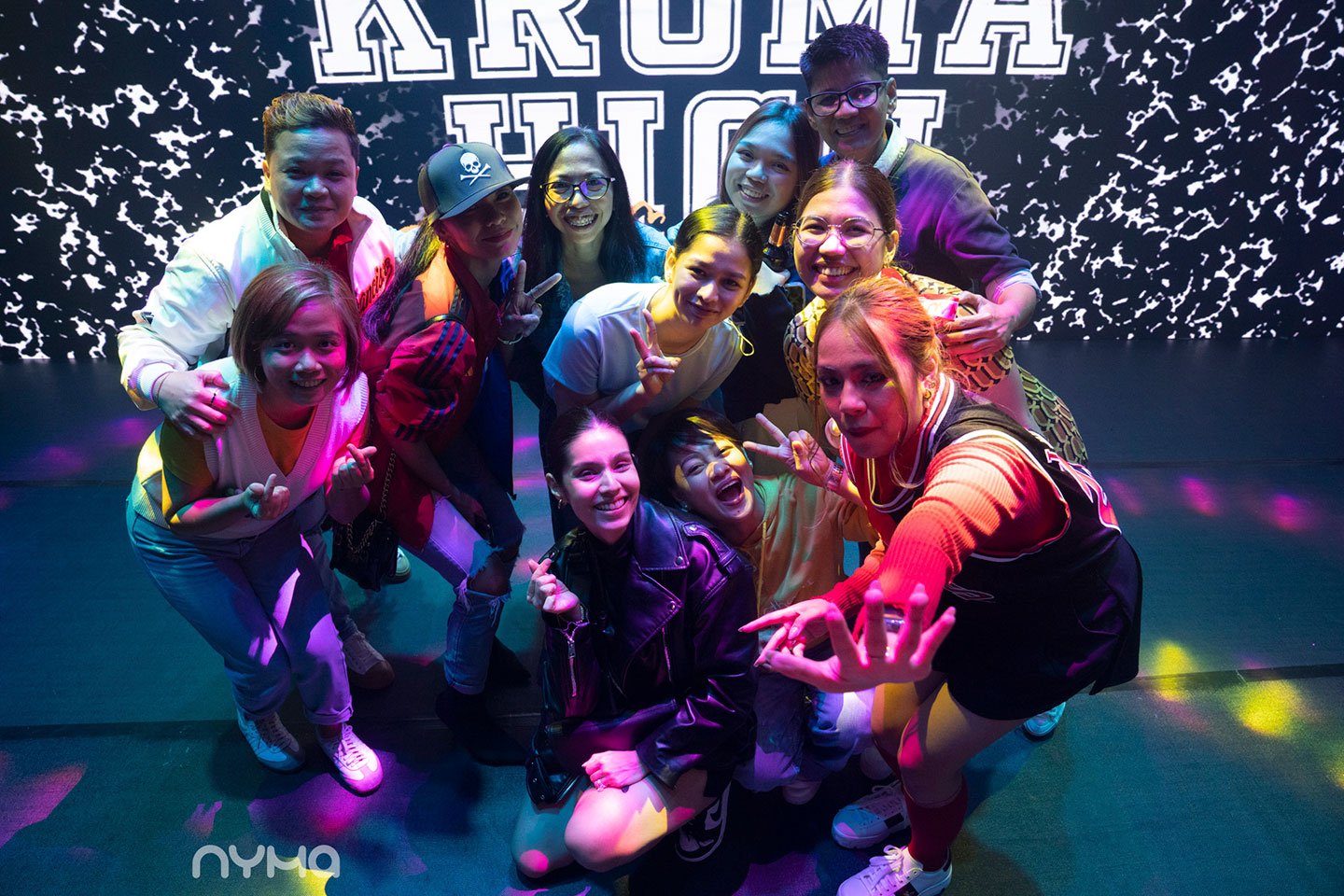
Our talent management side, — this is the sexy part of the business — it’s managed by Karen Tumbali who comes in with 20 years of experience in digital media and strategy. We’ve grouped our talents according to their competencies. For each section, or what we call “pods,” we use the agile methodology to manage it. Each pod manages a certain genre of a creator; there is a talent manager, a content creator, an artist, and a video editor so that all of the content that we produce is hyper-focused on that genre and really resonates with the talent and their audience. Creating content for a singer versus a content creator is very different. We want to make sure that from the manager, down the value chain, up ’til the editor, they’re really able to deliver the message of the talent. That’s how the business is structured and why we chose to keep everything in-house.
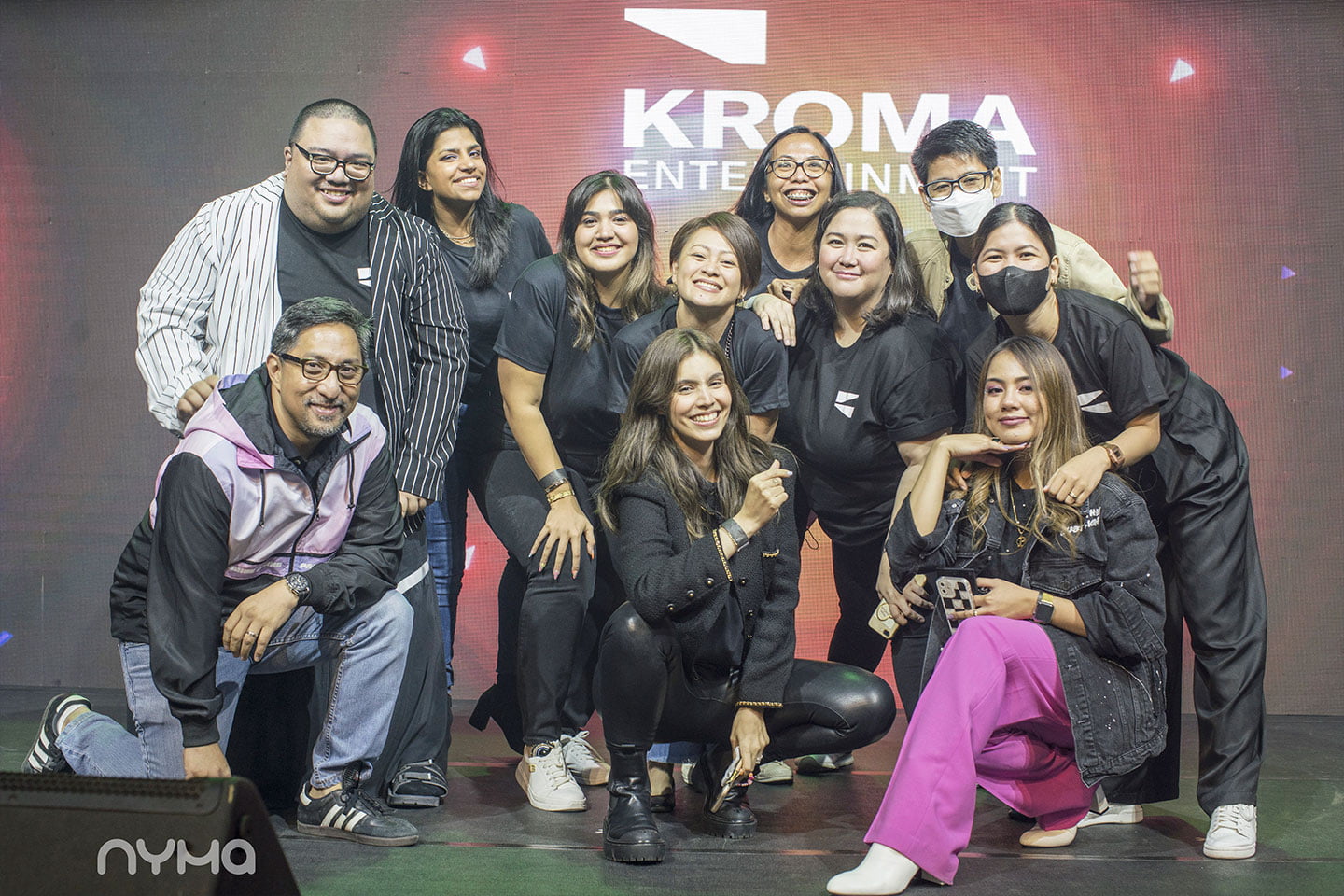
The creators also have the option if they want to continue to edit their own videos; it’s always a discussion. And if it is, then it’s a collaboration. But sometimes, some creators choose to keep the editing to themselves because they really want to keep it organic, and we respect that as well!

In terms of projects, with the booking side of the business, it depends on what the client wants. We’re very proud to say we have great clients, and they always let us give our creative input.
On the talent side of the business, we really sit down with the talents. We do a deep dive to understand what their audience wants, and we marry that with their own goals. When we establish the strategy, which we have our talents sign off on, it really helps us make sure that we’re walking the path together. If we aren’t listening to the talents and creators, if we aren’t working with them, or if we’re just going off trends, it’s not authentic to their messaging. And the audience can see right through that. So, it’s really about spending a lot of time understanding the audience, setting shared goals, and speaking to the fans, and scouring the comments — the good and the bad — because you learn from that. Your haters are your best teachers at times.
As for the trends, we aren’t necessarily trend-based. But there are some big business lines that I see that are becoming very influential for creators and talents as well. One of the big movements or shifts in areas is selling your own digital projects. One of the things that I can’t stress enough about is what’s going to benefit our creators. And in terms of digital projects, we ask, “How are you creating a product of yourself?” That’s a goal for our creators. “How are you also making yourself into a product? And how can you continue to sustain that?”
The second thing is creator education. I feel like we’re always learning things, and I think education is a currency and something that’s very important. When a creator teaches you something, you feel indebted to that creator, and you tend to want to follow them and learn more. Creators also have to own their audience. I can’t stress this enough: listening to what your audience has to say, reading their comments, staying true to your brand, engaging with the audience, sending out a newsletter, having meetups with them, and talking to the community, all of these are so important.
I was reading something on Google, and according to that, in 2022, the average human attention span is now 8.25 seconds. So, short-form content is very important today. I think that’s why TikTok has really captured the hearts of a lot of people, from Gen X to Gen Z; even our Gen Alphas are on TikTok. I also think another platform to look out for would be YouTube Shorts and its pivot this year. That’s something we’re working to spend a lot of time on. And even if you look at BeReal, it’s also short-form — it’s an instant, authentic content.
I think the last one would be diversifying your income streams. The first word that comes into people’s minds when I say this is merch, but merch is tricky. You can’t just release a T-shirt and expect everybody to buy it. You have to understand what your audience wants. Are you at your zenith when you release it? Will there be a demand for it? What type of product will serve your audience and at what price point should it be offered? These things are what we consider at NYMA and I think these will become very strong pillars for us in 2023.
You have a successful background in tech and telecom. Do your skills from those industries help you with running NYMA?

Absolutely! I would say that there’s no training like telecom training. Telecom trains you very well, and I’m incredibly thankful for that. A lot of my mentors really helped me understand how to run a business. You met one of them today, Cheng Kabigting. She really helped mold me. And one of the things that my mentor Nikko Acosta has always taught me is not just how to run my business, but also to put my people and my team first. If you’re not building a healthy team culture, you’re not going to have people that last and believe in your vision. I spend a lot of time with my team; their problems are my problems, and I support their success. It’s a collective, it’s a vision.
Another that has really helped is the agile methodology, which I adapted. The way we work is, every day, we have a stand-up meeting for 30 minutes, and everybody’s got a PL (project list) for their pod. They present to me what their priorities are for the day, and what are urgent versus important. Then I always step in with, “How can I help? What do you need?” So that by the end of the day, we’ve all achieved a common goal together.
We also utilize a lot of tools at NYMA from digital influencer tools to social listening and excel. Everything is an Excel file — I love Excel! Everything is incredibly organized, structured, and documented. I look at my dashboards every single morning, which is very telecom, but it really helps us understand the pace and the rigor of the business. Corporate training to me has really been an asset because it helps me run things like a machine.
What my mentors have also told me is how to put your heart and your people first. That’s really helped blend both worlds. I am learning a lot; I’m a baby in the talent management industry, but I am proud to say I work with some of the best people in the industry inside of NYMA and amongst many great colleagues in the industry. I learn and I listen to my team, and I always tell my team that if your boss isn’t listening to you, you’re probably in the wrong room because it should always be a conversation — never a dictatorship.
You also spent a lot of time in the business district of California. What lessons or things did you learn in Silicon Valley that you applied or could apply at NYMA?
One of the things I learned is you have to be very straightforward. I think that’s something that’s become a very big part of my personality. If you aren’t direct and straightforward, people will struggle with what you are trying to say. Being straightforward is something about me that’s both positive and negative. What you see is what you get. I’ll tell you if it’s good, I’ll tell you if it’s bad. I’ll tell you how I’m feeling so there’s no second-guessing.
The second thing is working hard and being very meticulous with your documentation. There should be something that you’re always able to refer to and look back on; record everything. And I think the last thing is to really have fun with what you’re doing. In our team, we spend a lot of time building our culture. And so, I make sure that when I hire people, I talk to them about how we spend a lot of time getting to know the team, getting to grow with them, and getting to share visions with them. I’d say those three things have really helped me, and I brought my experience abroad to building NYMA.
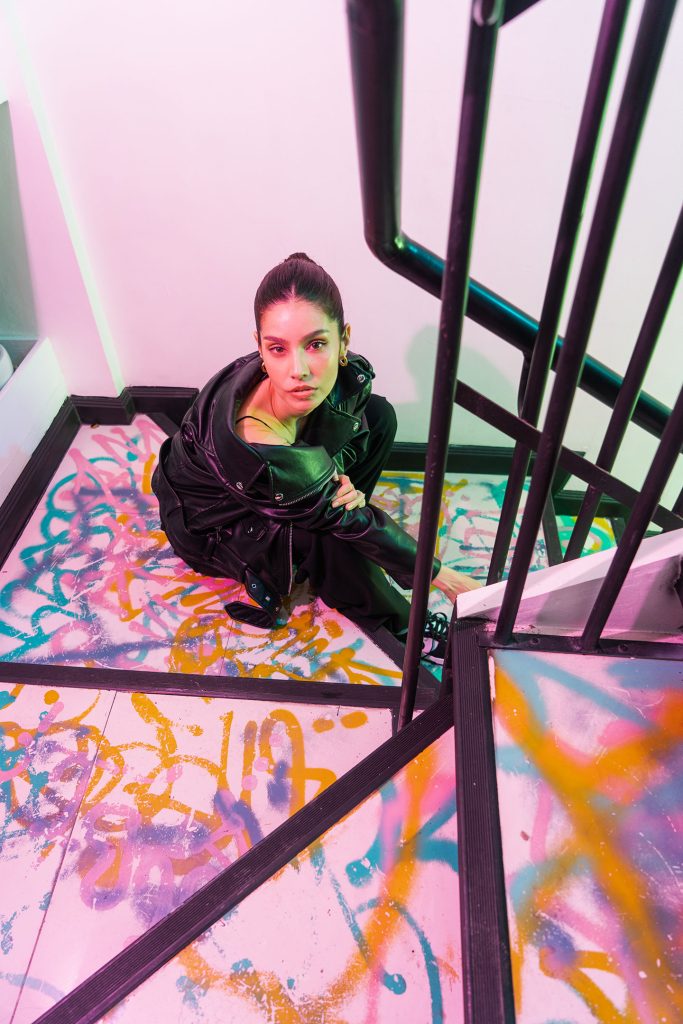
How did you enter the industries of production and talent management? What attracted you to them?
From a personal standpoint, many moons ago, I was once a talent. I remember there were a lot of opportunities that I wished were provided to me. I remember wanting to be in a space that was safe. I remember being told a lot of things about my appearance. And I always thought, “Could this be better? Is there a better situation or is this it? Is it just this?” So, I remembered a culture that wasn’t the friendliest to me. But I wanted to create a culture that aspired for more. That’s why our name, NYMA, means so much to me and the team. It’s healing my inner child, and also the inner children of the team who have dreams on how to improve the industry. Our focus is healing and creating a space where creators can feel safe and be proud to belong.
I feel like a lot of the time, trauma is so overlooked, and people don’t understand that trauma can manifest in different ways. At the age of 13 or 14, I didn’t know what I was facing, and I felt really scared. I wanted somebody to look out for me. So now, my team and our NYMA managers are tiger parents to all our talents. I’m very proud of it and them!
Business-wise, I saw an opportunity. I see the scale of talent management in Southeast Asian countries and their presence worldwide, and I believe that we can do the same. Filipinos are so talented. I feel like there’s an opportunity for us and all talent management companies to dominate, sustain, grow, and make Filipino talents household names worldwide. That’s what I really want to do; to work with my colleagues in the industry: tackle that hurdle, and make Filipinos known.
As a modern agency guided by a likewise forward-looking leader, NYMA has the unique advantage of going beyond orthodox stardom and influence by merging traditional methods with digital media. Through its bold choice to make a new path for its talents, NYMA is able to show off the artists’ authenticity and increase audience engagement across all platforms.
With the agency only beginning to bloom, we can expect more distinctive and remarkable content from its creators, better and out-of-the-box strategies from its Head of Talent Kat Bautista, and a new way of consuming media paved by NYMA.
NYMA is one of the brands under Kroma Entertainment, a tradigital entertainment company.


